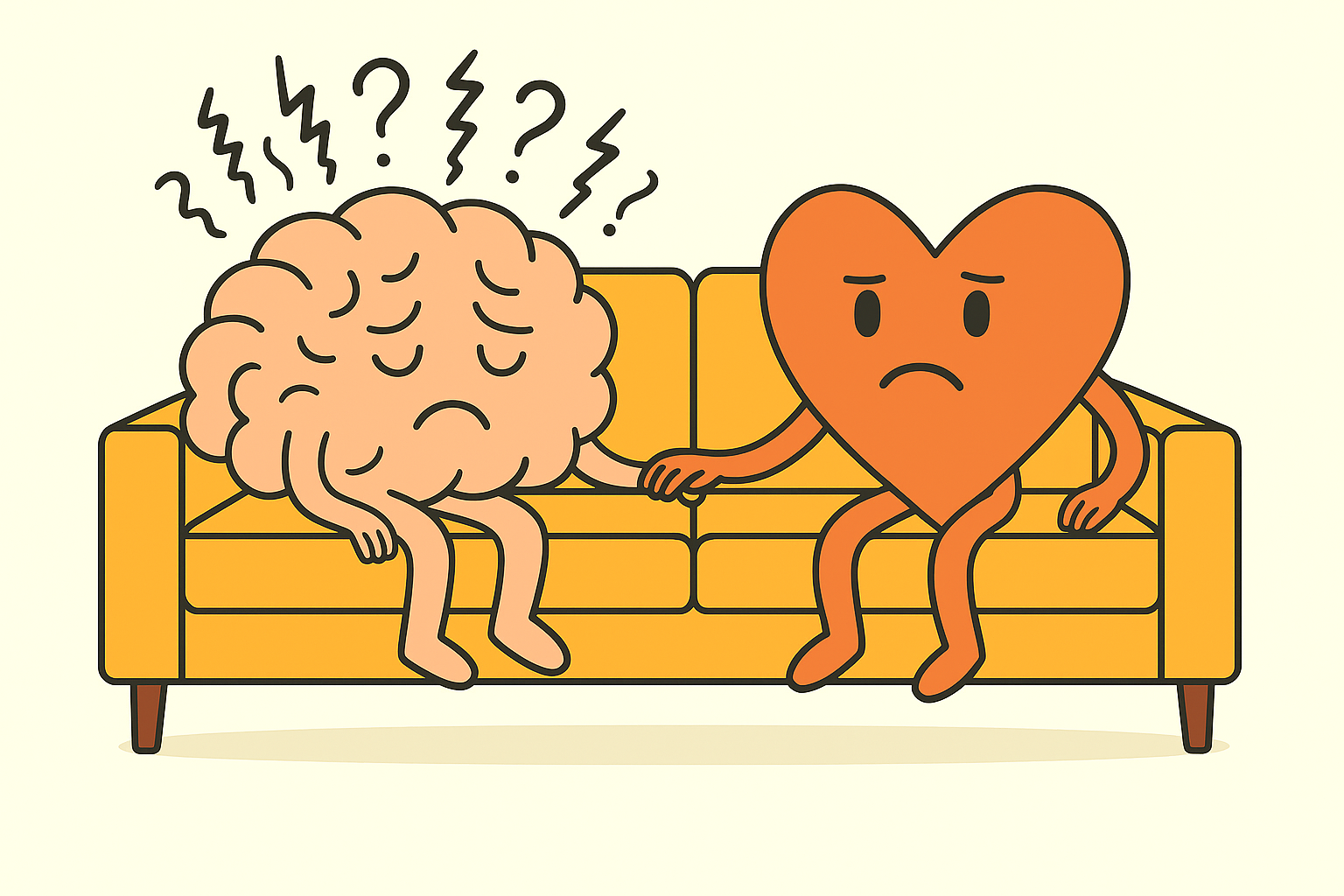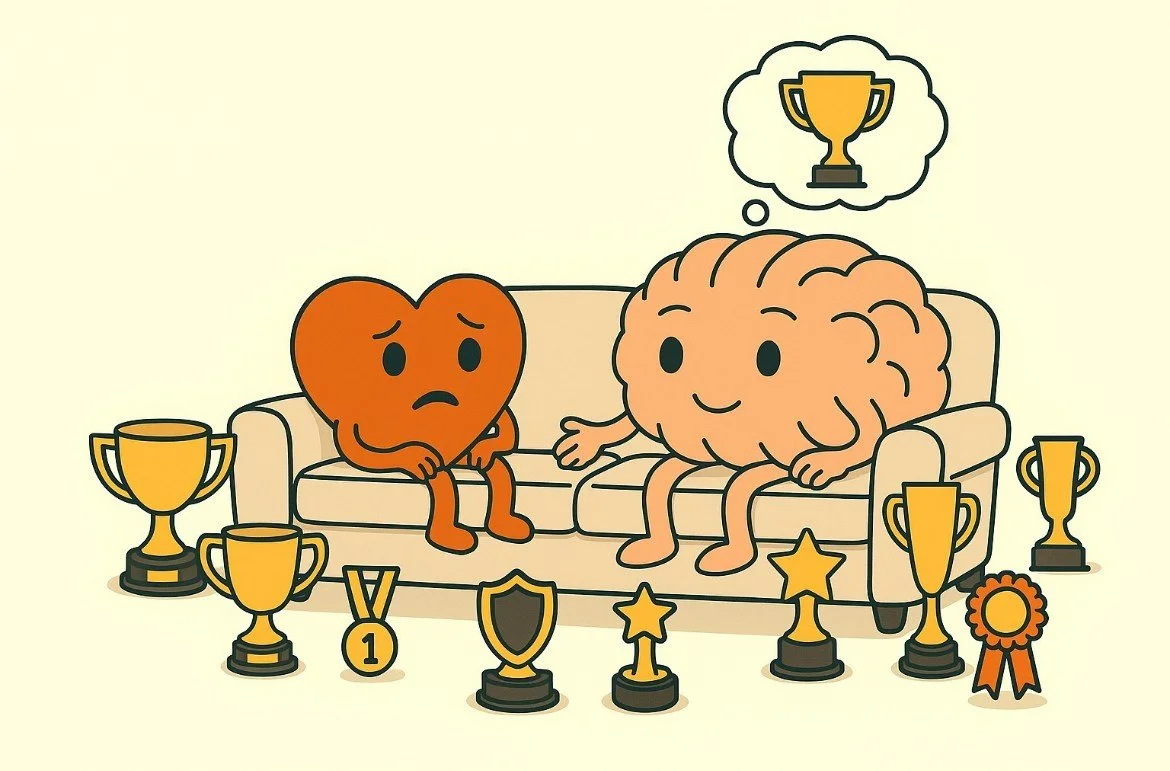Finding a Therapist: Where to Begin and What to Look For
Starting therapy can feel daunting, especially if you are not sure what is wrong or how to put it into words. Many people worry they need clarity before reaching out, yet therapy often begins in uncertainty. This blog explores how to start looking for a therapist, what really matters in the early sessions, and how trust, fit, and practical considerations can guide you towards the right support for you.
When Christmas Stirs More Than Joy and Goodwill
Christmas arrives dressed in lights, rituals, and comforting stories, yet for many, the season lands with a weight that sits quietly beneath the surface. Loneliness often increases, family systems become more rigid, and old roles or memories can stir emotions we thought we had outgrown. Even when we take part in the festive celebrations, something inside may feel slightly out of step. This piece explores why December can feel so emotionally difficult, how cultural scripts shape our expectations, and what becomes possible when we loosen the pressure to perform and dare to build greater trust and connection at this time of year.
How do I stop replaying conversations in my head?
You replay conversations in your mind long after they end, wishing it would just stop. Overthinking often has little to do with the moment itself and far more to do with what it stirred in you. This blog explores why certain interactions latch on, how old emotional patterns can quietly resurface, and why your mind keeps returning to the same loop. It offers a gentle way to understand what is really happening underneath the overthinking and what begins to change when you listen more closely.
Unspoken Rules: The Forces That Silently Guide Our Relationships
What are your unspoken rules? We all have them, and we all live by them. These quiet, invisible blueprints that shape how we love, work, and connect. They show up in the moments you stay silent to keep the peace, overextend yourself to feel safe, or replay familiar patterns that never quite satisfy. This week’s blog explores how these hidden rules influence our relationships with partners, family, friends, and colleagues, where they come from, and how to respond to them.
How Emotional Boundaries Keep Love Alive
In every deep relationship there’s a quiet dance between closeness and separateness. You want to feel seen and connected, yet still free to breathe, to think, to be yourself. Without clear emotional boundaries, this dance becomes unbalanced. Closeness turns into fusion; care becomes control. Over time, love can start to feel like loss of self. This post explores how emotional boundaries keep love alive by allowing space for individuality and connection to coexist.
Anxious About Having a Difficult Conversation with Your Partner?
You feel something building, a quiet ache of distance, a sting that lingers, a tension that keeps looping. You tell yourself to leave it, but silence begins to weigh on you. This week’s blog explores why difficult conversations in relationships can feel so daunting, and how speaking with intention and care can create a deeper connection.
Stuck in the Same Argument, Again? Understanding Psychological Games in Relationships
You find yourselves arguing again, different words, same feeling. The tension builds, you both know how it ends, and the distance between you grows a little more. Many couples get caught in repeating emotional loops that leave them frustrated, confused, and wondering why it keeps happening. This week’s blog explores how to make sense of these “games” the hidden patterns that replay old stories, and how awareness can help you step out of them.
5 Ways to Tell If You Have Normalised Disconnection in Your Relationship
Disconnection in relationships often creeps in quietly. It hides behind the busyness of daily life, the weight of stress, or the comfort of routine. What once felt close and alive can slowly become muted, until the absence of intimacy feels ordinary. In this blog, I explore five subtle signs that you may have normalised disconnection, why couples often settle for distance without even realising it, the hidden costs this brings, and practical steps you can take to rebuild closeness and intimacy.
The Shadows of Childhood: How Our Early Relationships Shape Adult Intimacy
Why can a single remark spark such a strong reaction? You are in another familiar argument, it’s fraught, tense, and deeply personal. Then, a single comment or look triggers anger, shame, or disbelief, escalating the situation into a row. You both stop listening completely, and communication collapses. You may be experiencing a shadow of childhood, where experiences from the past shape your adult relationships.
Are You Exhausted?
It is 2am and you are still awake. Your chest feels tight, your mind won’t switch off, and rest feels out of reach. This is more than tiredness; it is exhaustion. Exhaustion creeps in quietly. It disconnects us from ourselves, numbs our emotions, and makes it harder to be present in our relationships.
Why Do We Always Argue About the Little Things?
The dishwasher wasn’t loaded. You’ve run out of milk, again. You’re seething. But deep down, you know it’s not really about the dishes. Or the milk. Or the bins. Yet you’re still seething. These arguments often carry much bigger meaning. “You didn’t load the dishwasher” can feel like “you don’t value me.” Forgetting the milk can feel like “I am not important to you.” When conflicts about the “little things” repeat, they build frustration and distance. Over time, they chip away at connection and intimacy. But these arguments can also be opportunities. They can highlight what really matters: the need for recognition, respect, and care.
Silent Expectations: Why They Damage Relationships
You were upset. You waited for your partner to notice. They didn’t, again. You’re obviously not OK, and they aren’t responding. You’re left feeling infuriated and invisible. You just want them to reach out. The longing turns into disappointment. The silence grows heavier. What started as hope becomes anger, loneliness, even doubt about whether you are truly compatible. Silent expectations can quietly erode trust and intimacy, creating distance where closeness once lived. Here I explore why these unspoken needs can be so painful, and how moving towards more honest conversation is hard, and can help couples find their way back to connection.
Managing Stress? When Pushing Through Stops Working
You might feel it as a tight chest before a big meeting, nights when your mind refuses to switch off, or the constant hum of unease in the background. Stress shows up in many ways. We often push it aside or wear it like a badge of honour, proof that we are working hard and coping. But beneath the surface, stress takes its toll on our bodies, our sleep, our relationships, and our sense of self.
The Dangers of Not Arguing: How Quiet Disagreements Grow
Have you noticed that you and your partner haven’t reflected or argued for a while? Has there been an underlying silent tension that is becoming harder to ignore? It is often assumed that a relationship with no arguments is a happy one. However, silent arguments can be more damaging than loud ones. Not arguing with your partner when there are unresolved issues can highlight an unhealthy relationship with conflict, where one or both individuals in the couple associate arguing with a lack of safety. If this sounds like you, you aren’t alone. Here, I share some tips on how to break out of this cycle, to discuss underlying tensions in a healthy way, and to help you explore the underlying reasons why conflict may be challenging for you.
When Avoiding Anxiety Makes It Stronger
Do you notice a constant hum of tension in the background of your day? Perhaps it shows up as a knot in your stomach before an important call, a tightness in your chest when you think about the week ahead, or a restless mind that will not switch off at night. It is tempting to push these feelings away, to keep going and hope they fade. But often, the more we avoid them, the stronger they become. Avoidance can make anxiety grow; paradoxically, meeting it with curiosity can help you feel calmer and more in control. I share gentle, practical steps you can use straight away, along with how therapy can help you explore and untangle the deeper patterns keeping anxiety in place.
When You’re the One Who Brings It Up, Every Time
“Why is it always me who brings things up?” If you’ve ever asked yourself that, you’re not alone. Perhaps you’re the one who always raises the uncomfortable truths in your relationship. Perhaps you always initiate the check-ins, ask the hard questions, and try to repair the distance. But over time, this can feel less like emotional care and more like emotional burden. In my work with couples, I often hear this from clients who are seemingly stuck in a cycle of pursuing one another and then withdrawing. One partner feels like the emotional manager, while the other disappears into silence, distraction, or defence.
Why Saying “I’m Fine” Isn’t Working Anymore
You’re used to keeping it together. You’re used to telling yourself and everyone else that you are OK. But lately, “I’m fine” feels more like you are wearing a mask than telling the truth. Maybe you’ve stopped bringing things up to your partner or your friends because it never seems to help. Perhaps you're worried that asking for more will make you seem needy, dramatic, or too much. And yet the silence is starting to feel heavier, and you are feeling more strained. Many of us learn to minimise our emotional needs at a cost to personal relationships. Drawing from Transactional Analysis and clinical experience, I look at how these patterns show up in long-term partnerships, and what needs to change if we want real connection.
The Courage to Hope, the Resilience to Despair
Do you have concerns that you are falling into a cycle of despair? Does it feel harder to hold onto hope than it once did, and see a way forward? This article examines how to recognise hope and despair in relationships, both with others and within yourself, and explores the conditions needed to create emotional safety and foster hope. It also explores the role individual and couples therapy can play to support you in regaining a sense of hope when it has been lost.
Your Relationship Is Changing — Is It a Red Flag or a Green Flag?
Are you unsure if your relationship is changing for the better, or for the worse? Is that closeness you once felt with your partner no longer there? Relationship changes happen and patterns shift but how do you know when it is natural or if it highlights a deeper issue? Learn more about relationship changes, how to identify concerns and emotional harm, as well as how to grow and strengthen intimacy with your partner.
Are Your High Standards Starting to Hurt You?
Have you noticed your desire for everything to be perfect? Do you have pangs of anxiety when life gets hard? Have you historically not been given affection or love from caregivers unless you did well academically or in other areas? Here, we will look at perfectionism, particularly in gay couples, and how this need to be perfect can cause distance with others and yourself.



















